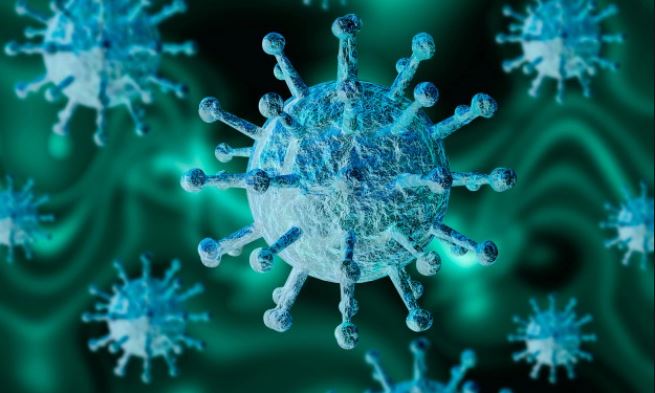
A Familiar Threat with Unfamiliar Traits
In a significant development that has stirred the global health community, the World Health Organization (WHO) has issued an urgent global alert concerning a new strain of influenza recently detected in multiple countries across Southeast Asia. This strain, tentatively classified as Influenza A(HXNy), exhibits high mutation rates and unusual clinical patterns, sparking fears of a new global public health crisis.
The alert, released from WHO’s Geneva headquarters, follows rising case numbers in regions including Vietnam, Thailand, and the Philippines, where clusters of acute respiratory illness have overwhelmed local healthcare systems.
What We Know So Far
Health authorities first flagged the virus in late June when several hospitals in Ho Chi Minh City and Bangkok reported patients with flu-like symptoms that escalated rapidly into severe respiratory distress. Preliminary lab results identified a novel subtype of influenza A not previously seen in humans.
Key characteristics include:
- High transmissibility, similar to seasonal flu but with a higher reproduction rate.
- Symptoms include high fever, persistent cough, muscle aches, and severe fatigue, with a noted uptick in pneumonia and bronchitis complications.
- Mortality rate currently estimated at 2.3%, though this could change as more data emerges.
- Resistant to conventional antiviral drugs, raising treatment concerns.
Laboratories across Southeast Asia have since sequenced the virus’s genome, revealing significant mutations in the hemagglutinin (HA) and neuraminidase (NA) proteins, which are crucial for viral infectivity and immune system evasion.
Global Health Agencies Mobilize
In response, the WHO has activated its Global Influenza Surveillance and Response System (GISRS) and is coordinating with health ministries to track the spread and contain potential outbreaks. The Centers for Disease Control and Prevention (CDC) in the U.S. and the European Centre for Disease Prevention and Control (ECDC) have also issued travel advisories and are enhancing airport screening for passengers from Southeast Asia.
Dr. Soumya Swaminathan, WHO’s Chief Scientist, stated in a press briefing:
“While it’s too early to predict a pandemic scenario, the mutations observed in this strain are concerning and warrant global preparedness.”
Lessons from the Past: COVID-19 Still Fresh
The COVID-19 pandemic left a lasting legacy on how countries respond to infectious diseases. Authorities are now moving swiftly, hoping to avoid the missteps of delayed action witnessed in early 2020.
Unlike COVID-19, which was caused by a novel coronavirus, this new strain is a mutated form of influenza — a virus that has already caused several pandemics in the 20th century, including the 1918 Spanish Flu, the 1957 Asian Flu, and the 2009 H1N1 outbreak.
This historical context is driving governments to ramp up surveillance, stockpile antivirals, and prepare hospital capacities for possible surges.
Regional Efforts: How Southeast Asia is Responding
Vietnam and Thailand have launched joint epidemiological investigations, quarantined affected areas, and suspended school activities in high-risk zones. Mobile health units have been dispatched to rural provinces where hospital access is limited.
The Philippines Department of Health has mandated immediate reporting of all flu-like cases and deployed rapid response teams to monitor suspected clusters. Authorities are encouraging mask mandates in public spaces, particularly in urban centers.
Could This Spread to the Middle East and Beyond?
The UAE, a major air travel hub, has already responded to the WHO alert by enhancing thermal scanning and symptom-check procedures at Dubai International Airport and Abu Dhabi International Airport. The Ministry of Health and Prevention (MoHAP) has urged residents returning from Southeast Asia to seek medical attention if flu symptoms develop.
Airlines have been advised to update passenger manifests and in-flight protocols, and quarantine measures are on standby in case of a local outbreak. The UAE’s experience during the COVID-19 pandemic — marked by swift action and coordinated government response — is likely to be its greatest asset.
The Race for a Vaccine
Scientists from WHO collaborating centers, including those in Japan and the United Kingdom, are already working on a candidate vaccine strain. However, as with all influenza vaccines, timelines depend on accurate virus characterization, which could take several months.
Meanwhile, pharmaceutical companies are evaluating whether existing quadrivalent flu vaccines offer any cross-protection. So far, early lab results suggest limited efficacy against the new strain, adding urgency to the vaccine development process.
Public Health Recommendations
Until a clearer picture emerges, global health agencies are urging the public to adopt proven preventive measures:
- Frequent hand washing with soap or alcohol-based sanitizers
- Wearing face masks in crowded or enclosed spaces
- Avoiding close contact with individuals showing symptoms
- Seeking medical care early for flu-like illness
- Getting the seasonal flu shot, which may still offer partial protection
Employers, schools, and institutions are advised to review contingency plans, enable remote work if necessary, and promote hygiene awareness campaigns.
Looking Ahead: Stay Informed, Stay Vigilant
The WHO has emphasized that while this is a serious public health development, panic is premature. Instead, global citizens are encouraged to stay informed through official health channels and avoid misinformation, especially on social media platforms.
Experts caution that the next few weeks will be crucial in determining whether the virus remains regionally contained or spreads internationally.
As Dr. Swaminathan put it:
“This is a test of our global health resilience. If we act quickly, share information transparently, and follow science, we can manage this new threat effectively.”
Conclusion
The emergence of this new influenza strain in Southeast Asia is a reminder of our interconnected world and the ongoing challenges of infectious disease surveillance. With strong global cooperation, transparent reporting, and swift medical innovation, the world can prevent another pandemic-scale crisis.
The WHO alert is not just a warning — it’s a call to action.




